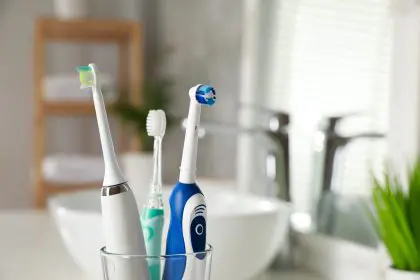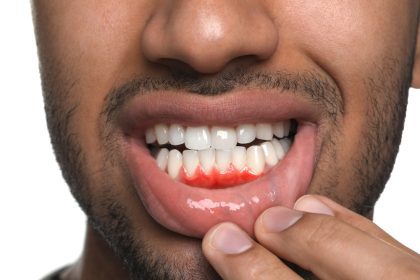Your morning coffee ritual, that refreshing afternoon soda, or your favorite happy hour beverage might be secretly wreaking havoc on your dental health. While most people understand the basics of dental care through brushing and flossing, many remain unaware of how their beverage choices significantly impact their oral health. This comprehensive guide explores how common drinks affect your teeth and provides expert insights on protecting your smile.
Understanding enamel erosion
Before diving into specific beverages, it’s crucial to understand how drinks damage teeth. Tooth enamel, the protective outer layer of your teeth, faces constant challenges from acids and sugars in beverages. Once enamel erodes, it doesn’t regenerate, making prevention essential for maintaining long-term dental health.
The combination of acidic content and sugar creates a particularly dangerous environment in your mouth. Acids weaken the enamel structure, while sugars feed harmful bacteria that produce additional acid, creating a destructive cycle that accelerates tooth decay.
Carbonated beverages and your smile
Carbonated soft drinks represent one of the most significant threats to dental health. These beverages combine high sugar content with carbonation, creating a dual attack on tooth enamel. The phosphoric and citric acids in these drinks can lower mouth pH to dangerous levels, initiating enamel erosion within minutes of consumption.
Diet versions, while sugar-free, still pose significant risks due to their high acid content. The artificial sweeteners used in these drinks might not feed bacteria, but the acidic nature of the carbonation continues to pose a threat to enamel integrity.
The truth about fruit juices
Many people turn to fruit juices as a healthier alternative to sodas, but this choice might not protect their dental health as expected. Natural fruit juices contain high levels of fruit acids and natural sugars that can be just as damaging as carbonated beverages. Citrus juices, in particular, possess high acid concentrations that can rapidly erode enamel.
Commercial fruit juices often contain additional sweeteners and preservatives that compound the problem. The combination of natural and added sugars creates an environment where harmful bacteria thrive, leading to accelerated tooth decay and potential cavity formation.
Sports and energy drinks revealed
The fitness industry promotes sports drinks as essential for hydration and performance, while energy drinks promise enhanced alertness and productivity. However, these beverages often contain concerning levels of acids and sugars that can severely impact dental health.
Energy drinks typically combine high sugar content with various acids, creating an especially hostile environment for teeth. The frequent consumption pattern associated with these drinks—sipping throughout the day—increases exposure time and compounds the damage to dental enamel.
Coffee and tea considerations
Your daily caffeine fix might come with unexpected dental consequences. While coffee and tea offer potential health benefits, they can significantly impact tooth appearance and health. These beverages contain tannins that can lead to stubborn staining, particularly in the microscopic ridges and grooves of tooth enamel.
Adding sweeteners, flavored syrups, or cream to these beverages introduces additional sugar content, creating more opportunities for bacterial growth and acid production. The temperature of these drinks can also affect tooth sensitivity, especially when consuming very hot beverages regularly.
Alcoholic beverages and oral health
Wine, beer, and cocktails present unique challenges to dental health. Beyond their acidic content, alcoholic beverages can lead to dehydration, reducing saliva production—your mouth’s natural defense mechanism against acids and bacteria. Red wine, in particular, contains compounds that can lead to persistent staining and enamel erosion.
Mixed drinks and cocktails often combine alcohol with sugary mixers, creating a perfect storm for dental damage. The sugar content in these beverages, combined with alcohol’s dehydrating effects, can accelerate tooth decay and erosion.
Professional protection strategies
Dental professionals recommend several strategies to minimize beverage-related damage while still enjoying your favorite drinks. Using straws when consuming acidic or sugary beverages can help redirect the liquid away from teeth. Rinsing with water after drinking potentially harmful beverages can help neutralize acids and wash away sugars.
Timing also plays a crucial role in prevention. Waiting at least thirty minutes after consuming acidic beverages before brushing allows time for saliva to neutralize acids and prevent brushing-related enamel damage.
The role of hydration
Water remains the best beverage choice for dental health. Beyond being sugar-free and non-acidic, water helps maintain proper saliva production and can help rinse away food particles and acids throughout the day. Fluoridated water provides additional protection against tooth decay.
Modern alternatives and substitutions
The beverage industry has responded to dental health concerns with various alternatives. Sugar-free and low-acid options provide more tooth-friendly choices for consumers. However, it’s essential to read labels carefully, as some alternatives may still contain harmful acids or artificial sweeteners that could affect oral health.
Long-term implications of beverage choices
The cumulative effect of beverage choices on dental health extends beyond immediate concerns like staining or sensitivity. Regular exposure to harmful drinks can lead to significant dental problems requiring extensive and expensive treatments. Understanding these long-term implications helps inform better daily choices.
Creating a balanced approach
Rather than completely eliminating favorite beverages, dental professionals recommend developing a balanced approach to consumption. This might include limiting certain drinks to specific times, implementing protective strategies, and maintaining excellent oral hygiene practices.
The future of dental-friendly beverages
Innovation in the beverage industry continues to produce new options designed to minimize dental health impacts. From specialized formulations to natural alternatives, manufacturers are responding to increasing awareness of oral health concerns.
Making informed choices
Understanding how different beverages affect dental health empowers better decision-making. While completely avoiding potentially harmful drinks might not be practical, awareness of their effects and implementation of protective strategies can help maintain dental health while still enjoying favorite beverages.















